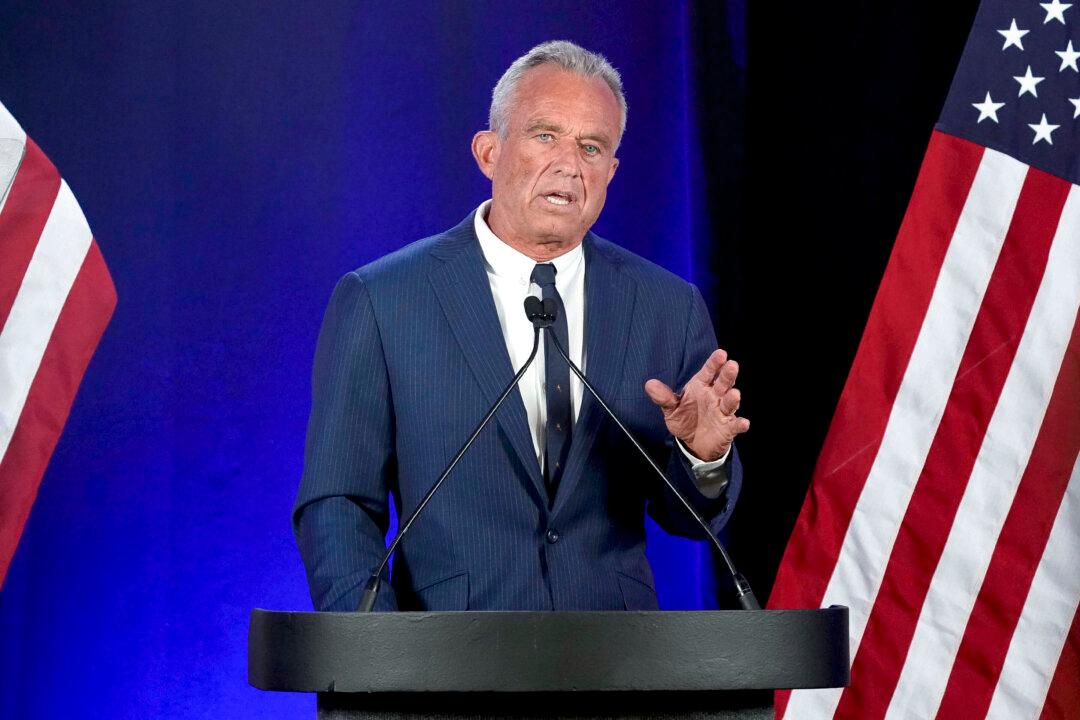Independent presidential candidate Robert F. Kennedy Jr. must remain on the November ballot in the battleground state of Michigan, despite suspending his campaign and endorsing former President Donald Trump, a state judge ruled on Sept. 3.
Kennedy qualified for Michigan’s Nov. 5 general election ballot in April after accepting a nomination from the Natural Law Party.




